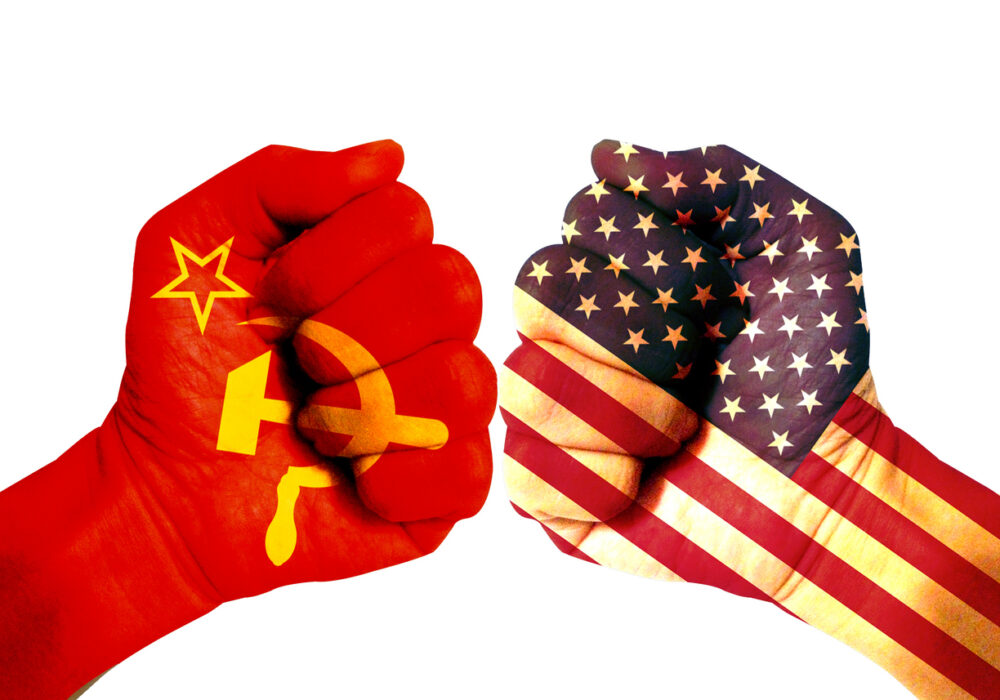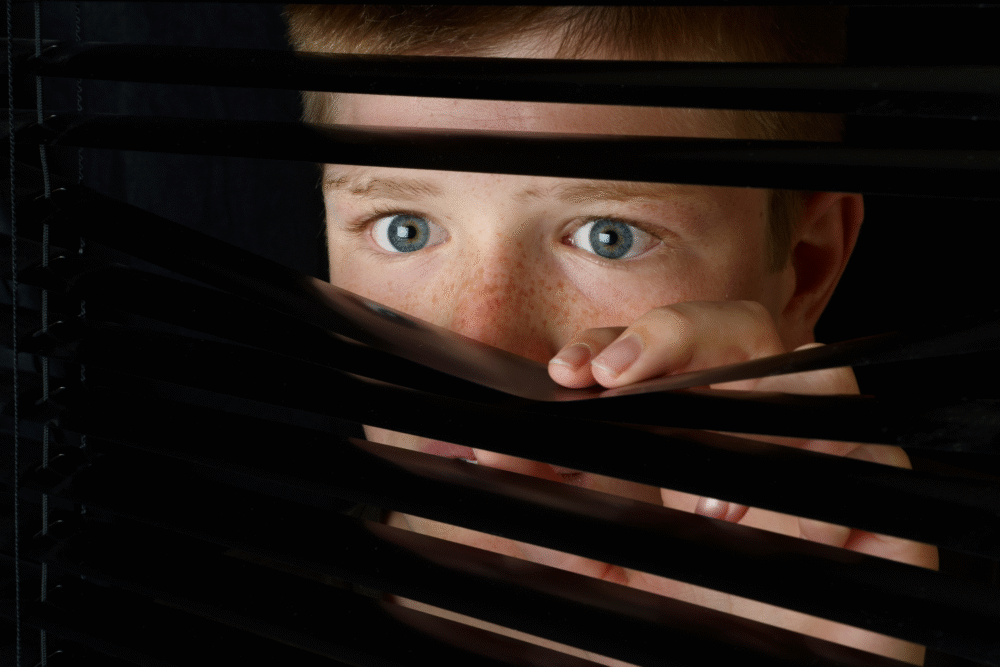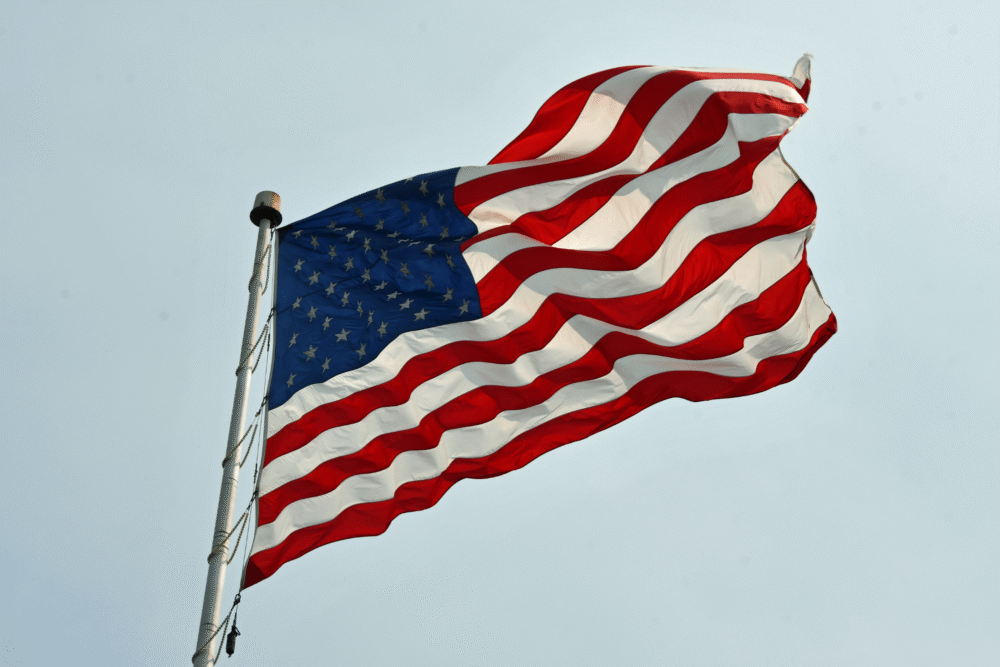Fear seeped through everything, even when no one was talking about it.

Growing up during the Cold War meant living under a constant cloud of tension, even if you didn’t fully understand where the storm was coming from. For Boomers, the anxiety wasn’t just about missiles or spies—it was the steady drumbeat of uncertainty embedded in everyday life. The fear wasn’t always loud or direct, but it was persistent, subtle, and shaped how they saw the world, relationships, and even success. They were raised to stay alert, stay quiet, and prepare for the worst—just in case.
These terrors weren’t just limited to what made the headlines. They showed up in school drills, family conversations, and pop culture. The generation that built bomb shelters and eyed their neighbors with suspicion also learned to keep their feelings in check and their trust locked tight. These emotional undercurrents didn’t disappear when the Cold War ended—they embedded themselves deep in the collective memory of a generation. To understand Boomers, you have to understand these quiet fears that molded them, even if no one talked about them at the time.
1. They were raised to expect nuclear annihilation at any moment.

The fear of a sudden, global catastrophe was more than just a background hum—it was drilled into their routines. Air raid sirens, “duck and cover” drills, and government-issued guides on surviving fallout made it clear: the world could end without warning, according to Maria E. Holmes at the Oxford Research Encyclopedias: Psychology. As kids, Boomers were told to hide under desks to shield themselves from bombs. It wasn’t logical, but it was supposed to offer comfort in a time where nothing felt safe.
That kind of looming doom didn’t disappear with childhood. Many Boomers carried that sense of fragility into adulthood, expecting plans to fall apart or the unexpected to strike without mercy. It shaped how they parented, how they invested, and how they approached life. Trusting the future never came easily after being raised in a world where it could all be gone by lunchtime.
2. They grew up believing enemies were everywhere—even next door.

The Cold War bred a culture of suspicion so intense it crept into neighborhoods, classrooms, and workplaces. Citizens were encouraged to report anything “un-American.” People who questioned authority or had different views could be labeled subversive. For kids growing up during this time, the message was clear: keep your head down and blend in.
This led to a generation that often valued conformity over risk. Boomers were taught to mistrust difference and to avoid rocking the boat, because being seen as too “other” might cost you everything, as reported by Charlie Williams at the National Institute of Health. That wariness didn’t vanish with the fall of the Berlin Wall—it lingered in how they approached politics, careers, and relationships for decades.
3. They were taught that privacy wasn’t guaranteed.

The fear of surveillance during the Cold War wasn’t just paranoia—it was real. Government programs were actively spying on citizens, tapping phones, and keeping files on anyone considered a potential threat, as stated by Audra Wolfe at The Atlantic. That kind of climate trains people to second-guess what they say, where they say it, and who’s listening.
Boomers absorbed this idea young: don’t overshare, don’t draw attention, and definitely don’t trust institutions too quickly. Even in today’s digital age, many carry a healthy dose of skepticism about tech, social media, and how much to reveal. Their caution isn’t just generational stubbornness—it’s the residue of growing up in a world where privacy was fragile.
4. They watched entertainment double as propaganda.

Cartoons, comic books, movies—even children’s programming during the Cold War carried subtle (and sometimes not-so-subtle) political messages. Heroes were patriotic and American, villains were foreign and dangerous. The media didn’t just reflect the fear of the times; it amplified it, teaching kids who to trust and who to fear before they could form their own opinions.
Boomers learned early on that narratives could be manipulated, but they also deeply internalized those messages. The lines between entertainment and agenda became blurred, shaping their understanding of global conflicts and foreign policy. It left many with a lasting sense that truth is slippery and that messaging always has a motive.
5. They lived with the belief that war was always just around the corner.

Even after World War II ended, war didn’t feel like a closed chapter. Korea, Vietnam, and constant military readiness during the Cold War meant the specter of conflict was always nearby. War wasn’t a theoretical idea—it was an expected event, baked into news reports, dinner conversations, and school history lessons.
This bred a mix of stoicism and fatalism. Boomers were raised to be prepared, to accept sacrifice, and to brace for loss. That mindset made them tough, but it also left little room for emotional nuance. They were taught to power through rather than pause to process, a habit that followed many into adulthood and colored how they handled stress, loss, and change.
6. They were warned that trust could be dangerous.

Trusting the wrong person during the Cold War could have serious consequences. The fear of infiltration—of spies, informants, or even neighbors turning on you—ran deep. Loyalty oaths and background checks became common, and suspicion infected everything from politics to friendships.
Boomers internalized a guarded way of moving through the world. Vulnerability didn’t feel safe. Being open or honest could be misread, so many learned to build emotional walls. Even in relationships, that ingrained caution shows up, making some Boomers hesitant to reveal too much or rely too heavily on anyone else.
7. They learned to respect authority without question.

In Cold War America, obedience was practically patriotic. Challenging the system was risky and could get you labeled un-American. Schools, churches, and community leaders all reinforced the idea that rules were there for a reason—and questioning them could make you a target.
This mindset influenced how many Boomers approached institutions. They may not always agree with authority, but they were taught to respect it, even when it failed them. That deference sometimes makes them seem rigid to younger generations, but it’s rooted in a survival strategy taught during one of the most paranoid times in history.
8. They assumed scarcity was always a possibility.

The Cold War didn’t bring just political fear—it created a constant sense of economic insecurity too. Talk of rationing, embargoes, and disrupted supply lines made it feel like scarcity was always looming. Families stocked up, saved obsessively, and learned to stretch everything, just in case.
Boomers became thrifty, pragmatic, and often deeply cautious about money. Even those who eventually prospered carried a mindset of preparation and fear of sudden collapse. Their financial conservatism wasn’t always about greed—it was about survival. The idea that stability could vanish overnight was hardwired into their thinking.
9. They were conditioned to equate nationalism with safety.

The Cold War turned patriotism into a moral duty. Flying the flag, reciting the Pledge of Allegiance, and wearing your country’s colors weren’t just symbols—they were shields. Being visibly loyal became a way to protect yourself from suspicion or scrutiny.
For Boomers, this instilled a powerful connection between identity and national pride. It wasn’t just about loving your country—it was about being safe. Even decades later, challenges to that narrative can feel deeply personal, because they threaten something more than politics—they shake a foundational defense mechanism.
10. They accepted that feelings were a luxury.

In a time of geopolitical fear and cultural pressure, emotional expression was seen as indulgent—or even weak. Kids were told to toughen up, stop crying, and get on with things. Processing feelings was not a priority in a world that felt like it might end any day.
Boomers grew into adults who were often uncomfortable with vulnerability. They’re more likely to bottle things up or dismiss mental health struggles as personal failings. It’s not that they don’t feel deeply—it’s that they were never shown how to safely express it. For many, it took decades to undo that silence.
11. They feared the world would end before they got to grow up.

Perhaps the most painful legacy of the Cold War is that many Boomers grew up believing they might not have a future. Kids absorbed messages that painted the world as fragile, on the brink of collapse. Dreams of adulthood were often wrapped in fear—they hoped for normalcy but quietly braced for disaster.
This shaped how they approached milestones, ambition, and legacy. Some rushed into adulthood to grab what they could before it vanished. Others played it safe, trying to build stability in a world that never felt solid. That quiet dread—the sense that nothing is guaranteed—still lingers in how they move through life.
12. They were taught that safety always comes with sacrifice.

Boomers didn’t grow up with the luxury of believing safety was guaranteed. Instead, they were taught it came at a cost—constant vigilance, personal compromise, and a willingness to follow rules no matter how inconvenient or emotionally numbing. Air raid drills, civil defense announcements, and the looming threat of nuclear war all reinforced the idea that survival required discipline and self-denial.
This shaped how they approached adulthood: protect your family, save for the worst, and don’t complain about the trade-offs. They expected life to be hard and came to associate discomfort with responsibility. Emotional and psychological needs were often pushed aside in favor of practical concerns. Even in peacetime, that mindset carried over, influencing how Boomers approached everything from parenting to career choices. The value of sacrifice became an unspoken badge of honor.
13. They were molded to believe that silence was strength.

During the Cold War, discretion wasn’t just polite—it was a survival skill. Speaking out, questioning norms, or expressing fear could put you in danger, socially or professionally. Boomers learned early that staying quiet kept you safe. Emotions were meant to be swallowed, political doubts kept private, and family issues hidden behind closed doors.
That kind of silence forged a generation that often confuses stoicism with emotional intelligence. Many Boomers still struggle to talk openly about their inner world, not because they don’t care, but because they were trained not to. That quiet strength may have helped them endure tough times, but it also created emotional gaps—especially in relationships with younger generations who value openness and vulnerability. For Boomers, silence wasn’t a lack of feeling—it was a protective habit born in a world full of invisible threats.
